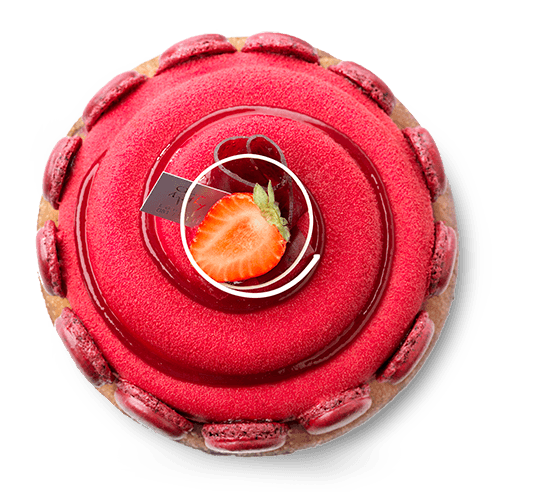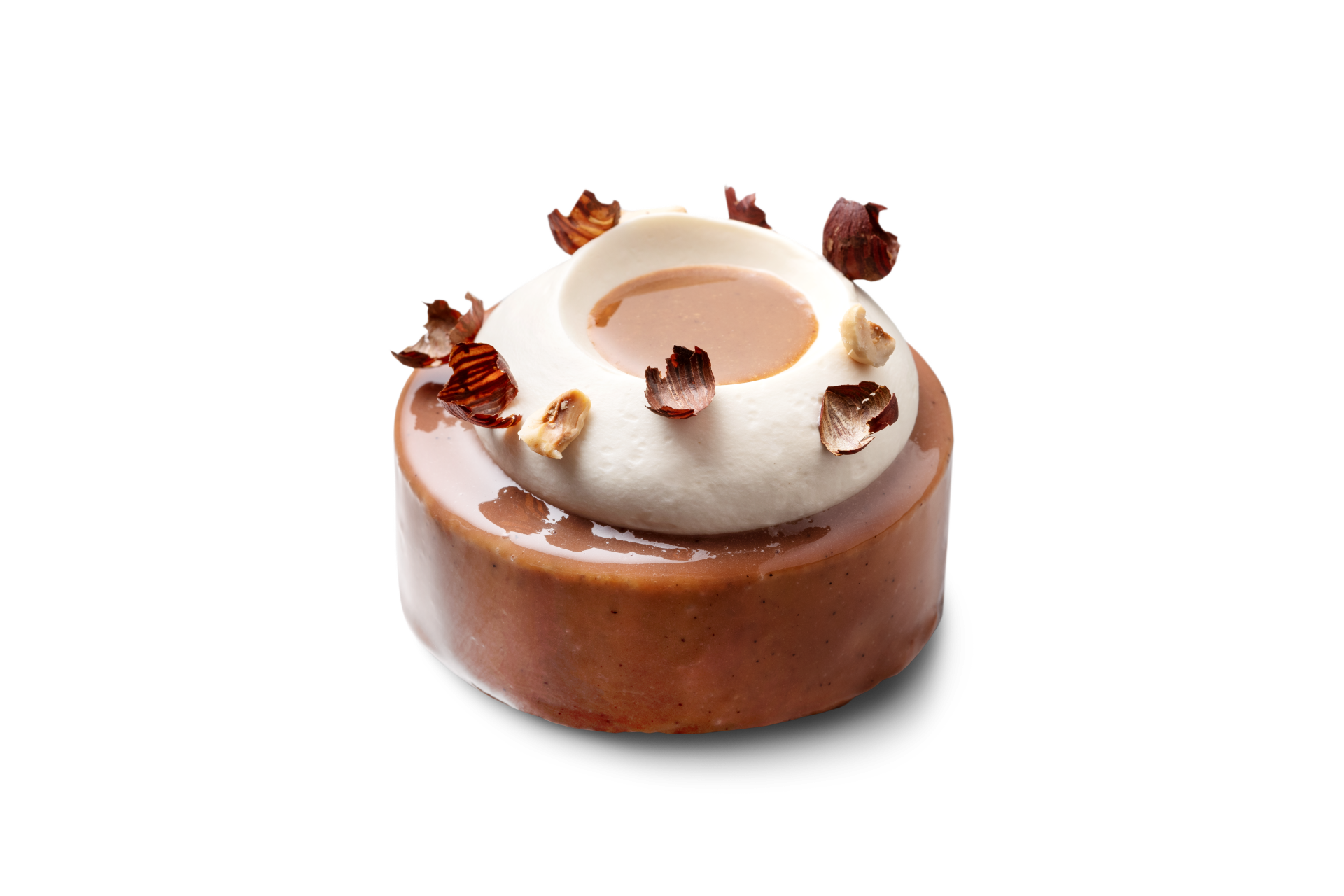"It tooks me 20 years to get us where we are today."
Becoming successful takes time, chef Benoit Dewitte knows this to be true. 'Nowadays, people open businesses that have cost millions: they have to be fully booked right from the start. They do not have time for organic growth. It took me 20 years to get us where we are today. Our concept has evolved: from private dining, catering and Table D’Hôtel to fine dining. That takes time.'


Earthy tones in the interior, a warm woolen carpet on the floor, bunches of lavender on the wall and, despite the clean, modern look, the atmosphere of an old farmstead, with beams on the ceiling, large doors and an orchard outside. Everything about the restaurant run by brothers Benoit and Bernard Dewitte in Ouwegem, just south-west of Ghent, breathes peace and serenity. The brothers also look immaculate, as does their social media. Does that mean there is no chaos anywhere? Benoit Dewitte smiles. ‘Our parents taught us perfection. Everything has to be in order: from the furniture to the art on the wall to the crockery on the table. My wife Geraldine is an interior designer; she helps us to choose fabrics, materials and furniture. We have an eye for decoration, we think about the use of colour and value the right atmosphere. Our restaurant is an extension of our own lives and should feel like home.’

After working in Italy and the south of France for a while, Benoit Dewitte opened his own restaurant in Ouwegem twenty years ago. ‘It started as a Table d’Hôtels, with a maximum of 15 covers per evening and by reservation only. My cousin served a meals in the restaurant, while I was in the kitchen. We did that for seven years.’ When Gault&Millau named Benoit Young Chef of the Year, things started to move very quickly. In 2012, Benoit receives a Michelin star in 2018 he is listed among the 50 best chefs in the world and in 2019 he wins Gault&Millau’s “vegetable dish of the year” award. ‘When I was awarded a Michelin start, I was in Hong Kong as a guest chef myself. I didn’t really see that coming, even though your guests and fellow chefs drive you pretty crazy in the run-up to the ceremony. On the boat to a restaurant in Macau, people suddenly started sending me congratulation messages. Looking back, I do regret not being in Belgium at that moment. It is quite a special moment after all. When I got back, the euphoria had already passed.’

Benoit still works personally in the kitchen and is now widely acclaimed for the plentiful in his dishes. ‘In almost every dish we incorporate vegetables or we take vegetables as a base and use them in different structures and components. For example, those mandarins: we use everything, from the peel to the flesh. ‘Benoit’s love for vegetables, fruits and herbs started when he worked in a restaurant that had its own vegetables and herb garden. ‘From then on, I also started working that way. However, I sill often combine vegetables with a piece of fish or meat: I’m under the impression that our guests expect it. Vegetables play a leading role in our menus and guests are more open to it than 20 years ago, but it’s still tricky. On the menu or at the table, we rarely mention, for example, cabbage, Brussels sprouts or onions: people just don’t appreciate those flavours. And they still often don’t eat green leaves, whereas we have carefully considered everything on your plate. Those green leaves complement the dish. ‘Benoit leaves any dietary wishes to his sous chef, because he can’t take it very well that people seem to be driven more by a sense of “wanting” and “taste”, rather than an actual allergy. Benoit also recounts with horror the dish where an onion is cooked whole, and its compartments filled with tartare. ‘There are still people who eat the tartare out and leave the onion! My idea is that if you come to eat with us, you should be open to more than just chips and stew. It’s all about the overall picture here.’

Especially in winter, Benoit likes to use cream in his kitchen. His cooking is largely based on French cuisine, although he draws inspiration from all parts of the world. ‘Over the years, I have tried to educate myself. I travel with other chefs or attend events to find inspiration. Three to four times a year, I try to cook elsewhere as a guest chef and we regularly invite someone into our business. I’ve just been to Bali and back home immediately started working with the herbs and spices I discovered there. Sometimes I bring some with me because I can’t get them here or not easily.’
Still, for Benoit, nothing beats the classic of French cuisine. ‘We work with fish and meat broths, then we use cream and finish it with a bit of butter. Those are still the best sauces! Such an intense flavour and people just love it. If we serve dishes with broth, nobody eats it. If we serve it with cream and butter, our guests almost lick their plates. This preference for flavours is in our culture. By the way, cream doesn’t have to by heavy. If you don’t whip it too far and give it another dimension with oil or vinegar, for example, it is going to learn more towards a certain elegance.’

Meanwhile, the brothers also support several restaurants in the region, including brand-new restaurant Merlesse in the Ardennes, which opened in June 2022. Just a short distance from the Domain of the Caves of Han is the 4-start Mercure Han-sur-Lesse hotel, which offers a fine dining experience on the ground floor. Benoit supports the kitchen staff and composes the menu. Bernard provides a customized wine list. ‘I needed a project like this’ says Benoit. ‘We considered a second business, but eventually chose to participate in several places. I am also helping a friend with restaurants in co-working spaces in Brussels, Paris and Eindhoven to set up a good lunch concept there. But that is not easy. You can cook as well as you like, success depends on a lot of factors. Where you are located and accessibility also play an important role.’
Being successful as a chef takes time, Benoit knows: ‘Investors have no patience: they want to see money right away. But you have to be able to build a good restaurant. o be able to build a good restaurant. You have to get to know your guests and learn to show your own signature. We are invariably full these days, but that really hasn’t always been the case. We have built our name carefully and been able to learn from our mistakes. Our concept has evolved over the years and for that we have needed a lot of patience.’







